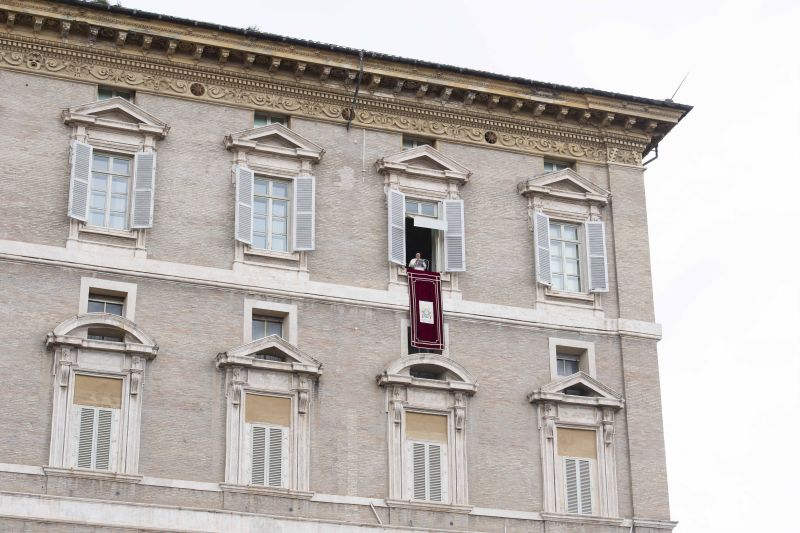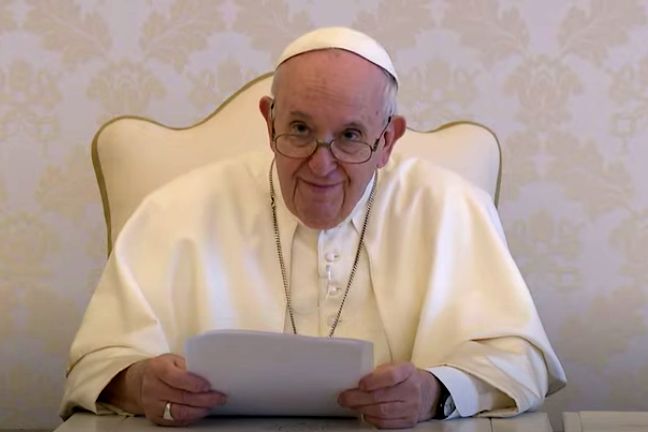
Vatican City, Sep 24, 2017 / 10:25 am (CNA/EWTN News).- The Vatican has issued a response to allegations made by former auditor general Libero Milone, who, three months after mysteriously stepping down in the middle of a five-year mandate, has said he was “threatened” into resignation by an “old guard” opposed to his work.
The Vatican’s Sept. 24 statement voiced “surprise and regret” at the allegations. It said that by speaking out, Milone “failed in the agreement to keep confidential the reasons for his resignation from office,” the Vatican said, noting that according to the statutes of his department, Milone’s task had been to “analyze the budgets and accounts” of the Holy See and its related administrations specifically.
“Unfortunately the office directed by Milone exceeded its powers and illegally commissioned an external firm to carry out investigative activities on the private lives of representatives of the Holy See,” the statement said.
“In addition to constituting a crime,” the act “irreparably crippled the trust placed in Mr. Milone, who, placed in front of his responsibilities, freely agreed to resign.”
Milone gave an interview to several media outlets Sept. 23, saying “I think the Pope is a great person, and he began with the best intentions.”
“But I’m afraid he was blocked by the old guard that’s still wholly there, which felt threatened when it understood that I could relate to the Pope and to Parolin what I had seen in the accounts. This is the logic,” he said.
According to his version of events, Milone, 69, said that in June he was falsely accused with “staged” allegations of a misuse of funds when he hired an outside firm to check security on computers in his office, and then “intimidated” into resigning from his position.
Milone said he wanted “to do good for the Church, to reform it like I was asked, but they wouldn’t let me.”
Speaking from his lawyer’s office, the former auditor made his comments to reporters from four different Italian and English language media outlets, including Italian paper Corriere della Sera, the Wall Street Journal, Reuters news agency and Italian TV channel SkyTg24.
He left his post in June without an explanation just two years into a five year mandate after being hired as the Vatican’s first Auditor General in a move to introduce more financial transparency in the Vatican City State.
Prior to coming to the Vatican, Milone had been chairman and CEO of the Deloitte global accounting firm in Italy, and had also worked for the United Nations and car enterprise Fiat.
At the time of his resignation, the Vatican said the act was done by “mutual agreement.” However, in his comments to media, Milone said this was not the case, but that he was intimidated into resigning when faced with threats of prosecution.
The Vatican statement in response to Milone’s comments made assurances that the investigations carried out were done “with every scruple and respect for the person.”
In his comments to media, Milone said he chose to speak out because in the past three months rumors have come out that are “offensive for my reputation and my professionalism.”
“I could no longer afford a small powerful group to expose my person for their shady games,” he said, explaining that he had always had a good relationship with the Pope, but for a year and a half prior to his resignation, he had been isolated and alienated from the Pope and other Vatican personnel.
Although he declined to give details due to non-disclosure agreements, Milone voiced his belief that he had been targeted after launching an investigation into a possible conflict of interest involving an Italian cardinal.
Describing his version of the chain of events that leading up to his resignation, Milone said he was called to the office of Archbishop Giovanni Becciu, the Vatican’s deputy Secretary of State, on June 19 and told that the Pope had lost faith in him and had requested his resignation.
When he asked why, Milone said he was given a series of explanations, “some of which seemed incredible.” When he asked to see the Pope, Milone said he was sent to Domenico Giani, head of the Gendarmeria, the Vatican’s police force, where he was interrogated for several hours.
After relocating to Milone’s office, the auditor said Giani yelled at him and demanded to have access to his computer and certain documents. Eventually Giani produced two receipts for payments he had made to the outside contractor that had checked security on the computers in his office.
The former auditor said one of the receipts was “a fake,” and voiced his belief that they had been fabricated as a result of a security check he had done after discovering unauthorized access to his computer and that spyware had been planted on his secretary’s computer in 2015.
After more questioning, Milone said he finally decided to sign a letter of resignation in order to “protect my family and my reputation.”
Milone said that when he offered to draft the letter, he was informed that one had already been written up, and was handed a letter dated for one month before his actual resignation took place, raising suspicious that the entire affair had been “staged.”
He also suggested that it might not be a coincidence that his own exit happened to coincide with the abuse charges recently raised against Cardinal George Pell, the architect of the Pope’s financial reform, the allegations of which started to come out around the same time that his efforts for reform were becoming increasingly controversial within the Vatican.
However, in comments to Reuters, Giani said there was “overwhelming evidence” against the former auditor, though he did not offer details.
Also in comments to Reuters, Archbishop Becciu said Milone had gone against “all the rules and was spying on the private lives of his superiors and staff, including me.” If he had not agreed to resign,” Becciu added, “we would have prosecuted him.”
Milone said he sent a letter to Pope Francis through a “secure channel” in July saying he was framed and “amazed” that his departure took place at the same time as that of Cardinal Pell, but has not received a response.
 […]
[…]







This is interesting. Maybe this is what it will take to get them to start paying attention to more important matters, like his undermining of the church’s moral witness to the world, the effect of which has been a crime against humanity.